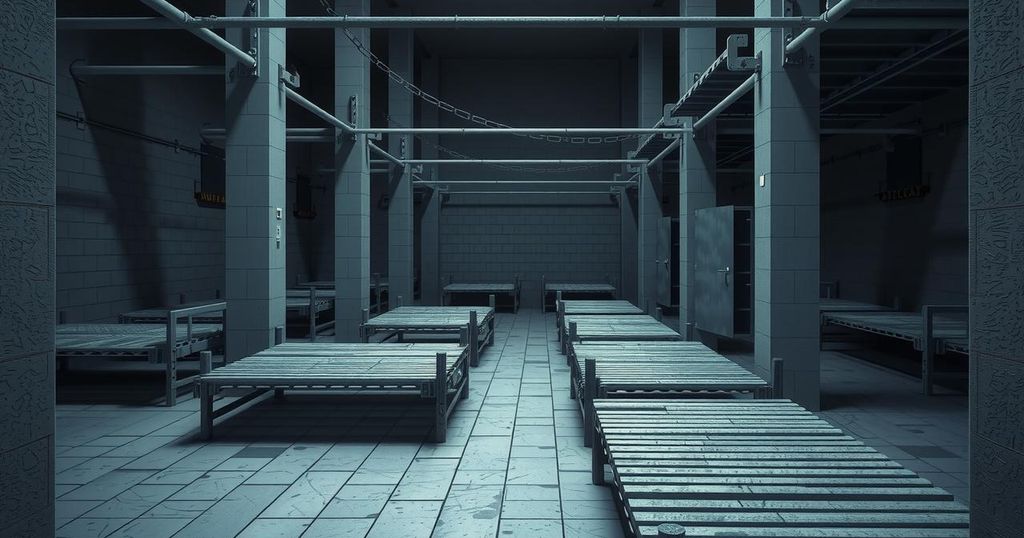World news
AE, ASIA, BUKELE, CUBA, DEMOCRACY, DIANA YATES, EL SALVADOR, HUMAN RIGHTS, JUDICIARY, LIFE SCIENCES, MARCO RUBIO, NATIONAL SECURITY, NAY, NEWS BUREAU, NORTH AMERICA, PEARL HARBOR, PHILIPPINES, POLITICS, SOUTH AMERICA, TREN DE ARAGUA, TRUMP, U. S, UNITED STATES, VENEZUELA
David O'Sullivan
0 Comments
Venezuelan Immigrants Deported to El Salvador: Legal and Human Rights Concerns
Over 200 Venezuelan immigrants were deported from the U.S. to El Salvador amidst accusations of gang associations. This decision, justified by the U.S. as a reaction to gang-related threats, was influenced by Salvadoran President Nayib Bukele’s offer to detain immigrants in his country. Legal challenges emerged, but detainees face dire conditions with limited rights and legal recourse. El Salvador’s troubled human rights history compounds the issues of this deportation.
On March 15, more than 200 Venezuelan immigrants were deported from the United States to El Salvador due to alleged gang activity. This decision was explained by the U.S. government as a response to what it termed an invasion by the Venezuelan gang Tren de Aragua. President Donald Trump invoked the Alien Enemies Act to authorize the deportations, a controversial move historically used during times of war, notably after Pearl Harbor.
The choice to deport these individuals to El Salvador was influenced by Salvadoran President Nayib Bukele, who offered to detain deported immigrants in his country’s notorious prisons. The Trump administration accepted this proposal, allocating $6 million for the detention of Venezuelans in El Salvador, leveraging Bukele’s willingness to facilitate the incarceration of these individuals, alongside U.S. criminals.
Legal challenges have emerged surrounding this deportation, with a U.S. judge granting a temporary restraining order against using the Alien Enemies Act in this situation. This ruling was upheld by an appeals court, coinciding with U.S. Secretary of Homeland Security Kristi Noem’s visit to El Salvador, where the deportees arrived.
Conditions experienced by the deportees include overcrowding in harsh environments, with reports from photojournalists indicating deplorable living quarters, lack of basic needs, and violations of their rights. Many of those detained were purportedly arrested solely based on their appearance and tattoos, with claims that they do not belong to any gangs.
Historically, El Salvador has struggled with human rights abuses dating back to its civil war from 1979 to 1992. Despite promises to address these issues, the aftermath has been marked by ongoing violence and a surge in gang influence. President Bukele’s emergency measures have led to mass arrests and the suspension of constitutional rights, significantly increasing the country’s incarceration rate.
The impact of the civil war in El Salvador has resulted in escalated social violence, with existing gangs linked to past deportations from the U.S. Bukele’s government continues to grapple with gang violence, often employing extreme measures that echo previous administrations’ approaches while cultivating a complex relationship with the United States.
The future of the deported Venezuelans remains uncertain; they lack legal representation and have not had the opportunity to be seen by Salvadoran judges. Classified as “terrorists” by the Salvadoran government, these individuals face significant barriers in navigating the legal system, raising concerns about their rights and potential outcomes in El Salvador’s carceral facilities.
The deportation of over 200 Venezuelan immigrants to El Salvador raises critical human rights and legal concerns. Framed as a response to gang violence, this move reflects deep historical ties and current political agendas between the U.S. and El Salvador under President Bukele. The conditions faced by detainees highlight significant discrepancies in treatment and rights, revealing a troubling trend in immigration policy and enforcement. Moving forward, the integration of these detainees into the Salvadoran system poses grave questions regarding legality and human dignity.
Original Source: news.illinois.edu




Post Comment